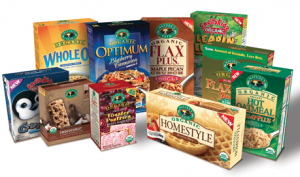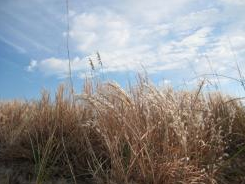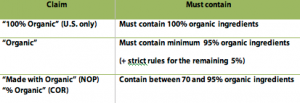Continuing on with my breakfast theme, one of my main breakfasts is cereal. In particular, the box of cereal right now in my cupboard is Nature’s Path Flax Plus Cereal. I thought that this company/ product would be a good one to investigate due to Nature’s Path’s commitment to the environment. I think it will be interesting to see how it is possible for companies to be environmentally- conscious, yet still profit from their products.
Naturally, I first went to the Nature’s Path Website. Their company vision is the following:
“To be a trusted name for quality organic foods in every home; socially responsible, environmentally sustainable and financially viable.”
-Arran Stephens, Founder
They source all their ingredients from organic farms and are in the process of purchasing farmland and converting it to organic. They were also waste-free certified in 2010 and are on the way to being carbon neutral by 2020. In fact, on this page of their website, they even note many of the prominent environmental thinkers like Wendell Berry and Sir Albert Howard that we have studied in our own readings during this course. They seem to have a connection to the land that many companies have lost over time as farms become of a larger and larger scale. One thing that I really appreciated from their website was the fact that they introduce the farmers that actually grow their ingredients. Nature’s Path wants their customers to be aware of where their food is coming from.
Reading about this company and its business practices has made me a lot more aware of the profound differences between organic products and non-organic products. Organic farms tend to be smaller, they use very few chemicals and the people who run them have a connection to their land that leads to better stewardship. Because “organic” is sometimes a fluid term, here is a table that describes what it really means:
One thing that really struck me from their website was this fact:
“If only 10,000 medium sized farms in the U.S. converted to organic production, they would store so much carbon in the soil that it would be equivalent to taking 1,174,400 cars off the road, or reducing car miles driven by 14.62 billion miles. Converting the U.S.’s 160 million corn and soybean acres to organic production would sequester enough carbon to satisfy 73 percent of the Kyoto targets for CO2 reduction in the U.S. U.S. agriculture as currently practiced emits a total of 1.5 trillion pounds of CO2 annually into the atmosphere. Converting all U.S. cropland to organic would not only wipe out agriculture’s massive emission problem. By eliminating energy-costly chemical fertilizers, it would actually give us a net increase in soil carbon of 734 billion pounds.”
Source: http://www.newfarm.org/depts/NFfield_trials/1003/carbonsequest_print.shtml.
Obviously, if more companies were willingly to invest the time and money to have similar business practices to Nature’s Path, we would be less reliant on fossil fuels as a whole and our agricultural practices would be must more sustainable. I can feel confident purchasing Nature’s Path products, not only because of their organic certification but also because of their company values. Although there is likely still some oil usage in both producing and packaging this cereal product, buying from this company is a better choice than many other companies. While I don’t necessarily always buy organic foods due to higher costs, reading about companies like this one make me think that the higher costs might be worth it.


